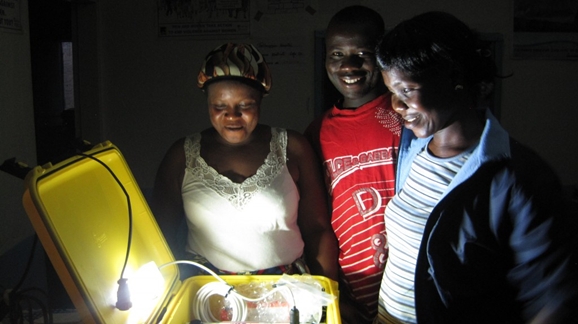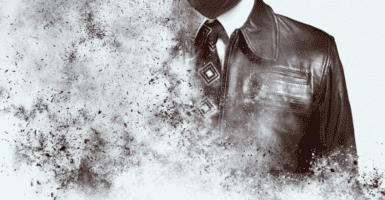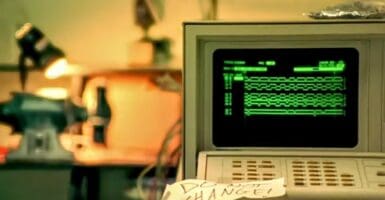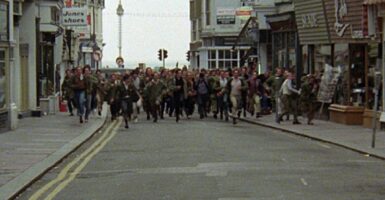Solar Suitcases Provide Lifesaving Light In Developing Nations
This article is more than 2 years old
A lot of things are taken for granted in industrialized nations, and it’s only becoming more obvious as our cell phones get smarter and our computers get smaller and our Taco Bell tacos get more Dorito-ier. I bet barely anyone reading this has ever thought to themselves, “Boy, I sure hope I don’t have a medical emergency after sunset, since my survival rate is cut by more than half in the dark.”
For the last few years, Dr. Laura Stachel, OBGYN, has used her nonprofit, We Care Solar, to bring light to medical facilities in under-developed nations all over the world. She does this by way of the ingenious Solar Suitcase, developed by Stachel, her husband, Hal Aronson, and a solar energy educator. After having spent two weeks in 2008 horrified by the detrimental conditions during nighttime childbirths, Stachel was inspired to devise a solution, and though the Solar Suitcase was only a prototype for a larger idea, the device as it was had an immediate impact on the hospital, which in that next year saw a 70% decrease in the death rate for women during birth.

Today’s version of the Suitcase, which costs about $1,500 to make but is given to medical facilities for free, contains two roof-mounted solar panels connected to high-quality LED lights that provide up to 20 hours of light at full power. It also has a set of headlamps, a fetal Doppler for monitoring a baby’s heart, and a cell phone charging unit. To top it off, the batteries inside only need to be changed once every two years.
Since those early days, We Care Solar has sent out around 250 of the kits, and their plans are only growing, hoping to further the improvement of maternal health care in those developing nations. It’s already had a major impact on a non-maternity emergency.
Once a Suitcase was dropped off at a facility in the Democratic Republic of the Congo, a doctor successfully delivered twins, but the next day, cholera broke out across the region. “For the first time in the history of (the doctor’s) island, no one died of cholera,” Stachel told CNN. “He told us that in the past, 50% of patients would die, and 80% of those deaths would happen at night.” Those suffering were treated day and night for the following month, having to camp outside the clinic until they could be seen. But not a single death. Somebody sneak this thing to John Murdoch in Dark City!
Even though they’re a non-profit, We Care Solar could probably patent this thing and sell shares to corporations who could hock the Suitcases to disaster-ridden areas like New Orleans, Florida, and the northeast, should gigantic storms continue to occur. Assuming someone hasn’t already stolen the idea and will begin work on it just as soon as he finishes writing this story.












